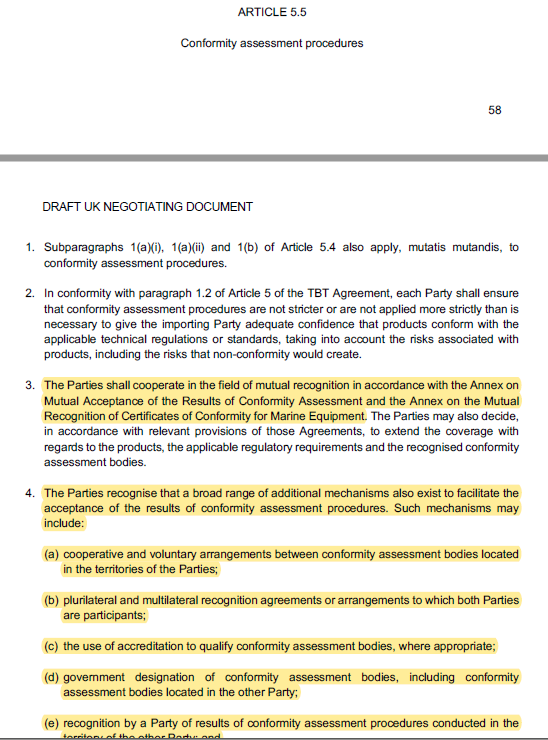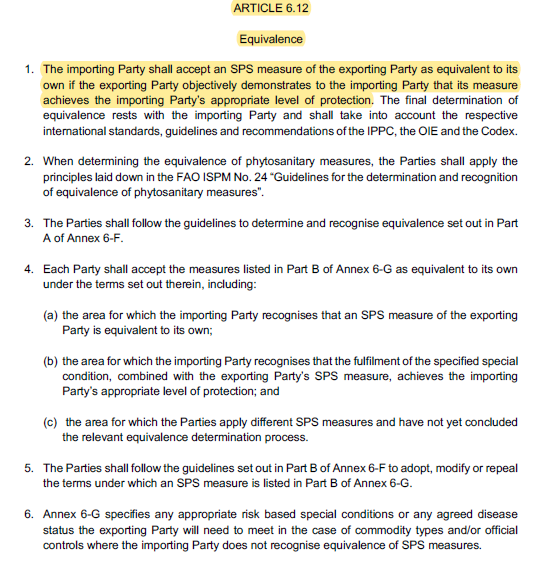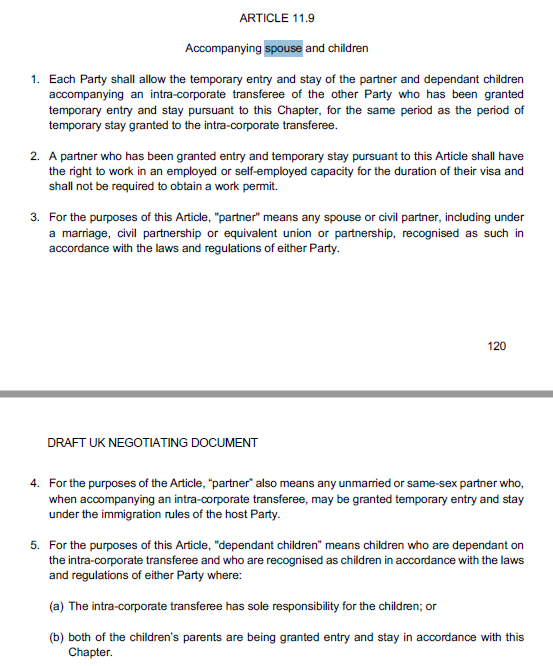Having now taken a few days to digest the detail of the UK-EU agreement, here's a couple of observations from me on the deal, what it means, how we got here, & where it might take future UK-EU relations.
(A long thread)
This shouldn't preclude us, or MPs and MEPs, from looking critically at the deal on the table. /3
From the EU's view, integrity of the single market is preserved with level-playing field obligations which go virtually beyond any other 3rd-country (even the Swiss). /4
This negotiation was about defensiveness: protecting "sovereignty" on the UK side and "integrity of the single market" on the EU side, and at any price. /6
This is far more than UK initial position, but less than the EU’s ask. /7
Again, a reasonable compromise, but closer to the EU position than the UK's. /8
The scope is wide: it applies to any future subsidies, or labour/social, or envi/climate protections. /9
Importantly, the right to impose rebalancing measures is symmetrical (both sides can use it), and /10
The two principles are just what I proposed several weeks ago as a way to break the deadlock. /11
https://t.co/jhPOopV36z
There's a compromise here if the UK and EU can agree on 2 principles:
— Anton Spisak (@AntonSpisak) December 12, 2020
(1) the unilateral right to retaliate must be symmetrical (which the EU seems to accept now), and
(2) the proportionality of any tariffs can be challenged before independent arbitration.
(4/n)
Fortunately, there's a review clause after 4 yrs. /12
Otherwise, it has folded completely. It accepted a single legal treaty that it had vehemently opposed at the outset; /13
I'd note one aspect where the UK has conceded: dispute resolution & cross-retaliation (there can be tariffs if there's no future agreement on quotas). /15
https://t.co/knd9FDO0gf
Fish thread.
— John Lichfield (@john_lichfield) December 26, 2020
Having read the Brexit deal, I believe B. Johnson misled the nation on Thurs when he said Britain could catch \u201call the fish that it wants \u201d in UK waters in 5 years\u2019 time. The clear presumption in the text is that EU fleets will have similar access after 2026.1/12
In my view, what matters in assessing the quality of a deal is not only the obligations, but also the rights it gives and the balance btwn rights & obligations. /16
True, it provides access without tariffs and quotas (fow now, and s.t. goods qualifying for zero tariffs).
Plus, helpful provisions on air and road transport & energy; which are all a function of UK-EU proximity. /17
Here're several notable examples. /18
The EU agreed it (in limited way) with Canada, US, Switzerland, etc. The UK asked for It in its initial offer (see below).
With the exception of a handful of sectoral annexes, you won’t find it in the final deal. /19

The same. The EU agreed with Canada, Japan, and proposed it to AUS/NZ.
Search for it in the deal, but you won’t find it. With implications for trade between GB and NI. /20

The final offer on temporary movement of business visitors (Mode 4) is less generous than EU-Japan.
Also, forget about accompanying spouses, children, etc, that the UK had proposed initially. /21

This isn't about equivalence, but about ongoing cooperation. It can be found in EU-Japan. Forget about it here.
There'll be a non-binding MoU next year.
(Btw, this, from Sunak, is embarrassing) /22
https://t.co/pjQFi0oEyq
More from Trading
1. Core setup
2. Pivot points trades
3. PDH/PDL trades
4. Open interest addictions combined with rejections on charts.
5. Website to confirm bias
Very quick read.
Share if you liked for the benefit of everyone.
•Main setup of @ITRADE191
He used this setup daily for all trades.
1. EMA crossover 10/20
2. Supertrend 10/3
3. Vwap
4. RSI >
@MiteshFan @Mitesh_Engr @Abhishekkar_ MY TRADING SETUP .... I've been using it for a long time .. result good try it \U0001f607 pic.twitter.com/XThUD0ftbl
— itrade(DJ) (@ITRADE191) June 13, 2020
•Volume always greater than
Volume Should always be above 20 pic.twitter.com/CPgxLgpPKF
— itrade(DJ) (@ITRADE191) June 13, 2020
•Candle Rejecting from
— itrade(DJ) (@ITRADE191) August 25, 2020
•Pivot settings
— itrade(DJ) (@ITRADE191) October 20, 2020
Yesterday was brutal for some people...
Losing life-changing money sucks, losing any money sucks...you can chase the market or you can change your strategy.
2/ The original thread is gone but you can read it here.
https://t.co/cLLNs75rB0
tl;dr
- Traded $32k to $1.2m
- Thought I was a genius
- Made poor investments
- Didn't conserve capital
- Peaked at 150 BTC
- Lost nearly all of it
2 weeks from losing my house + no income. Oops.
3/ I am going to assume you are in it for the money rather than the tech. Yeah, you might Tweet about the amazing blockchaining of cross-border payments and oracles yadda yadda...really, you are in it to make money.
If you are really in it for the tech, go and build something.
4/ Okay, so if you want to make money, trading is super hard, you are trading against:
- Better traders than you
- People who can move markets
- Unknown information
And if you are trading with leverage you might blow up your account with the volatility.
5/ If you are not trading, you are investing. Okay, so what are you investing in?
I made the decision that the crypto with the best opportunity of existing in 10 years is #Bitcoin:
- Solves a genuine problem
- The right tech
- A proven track record




















